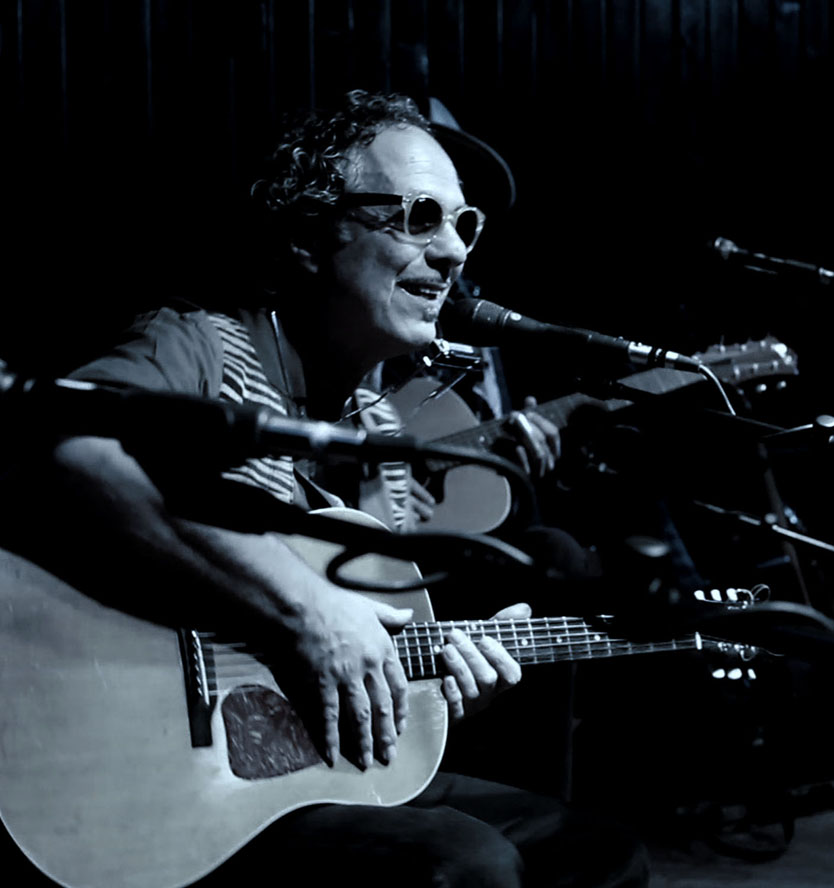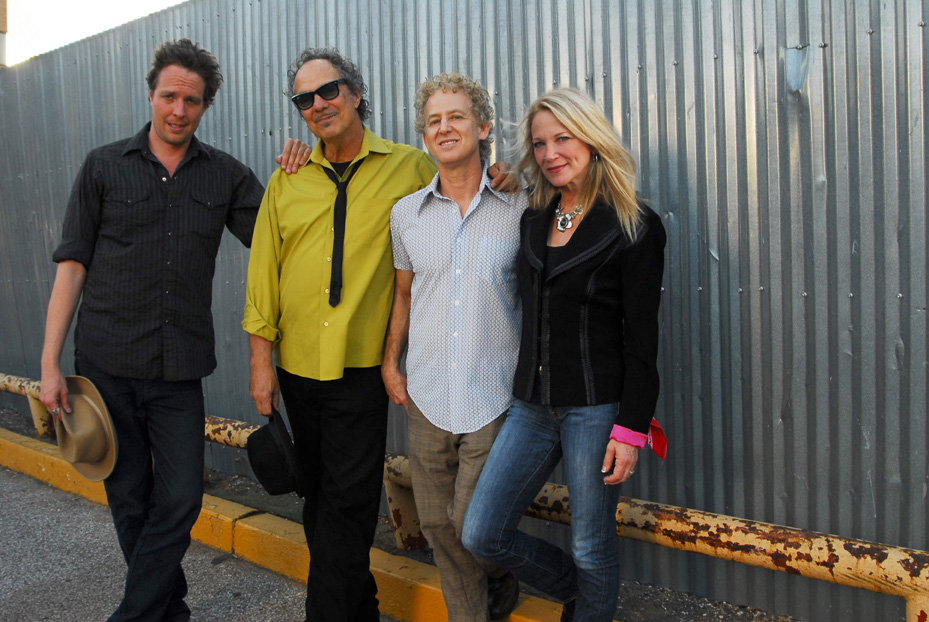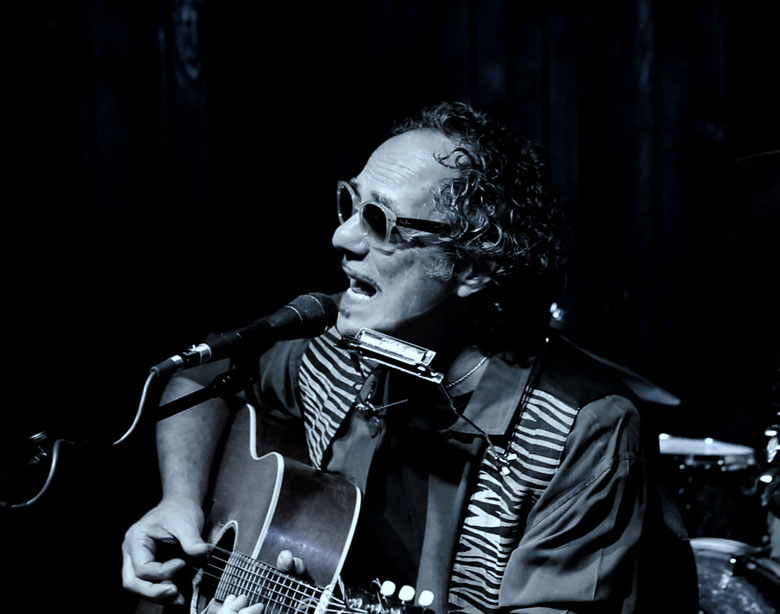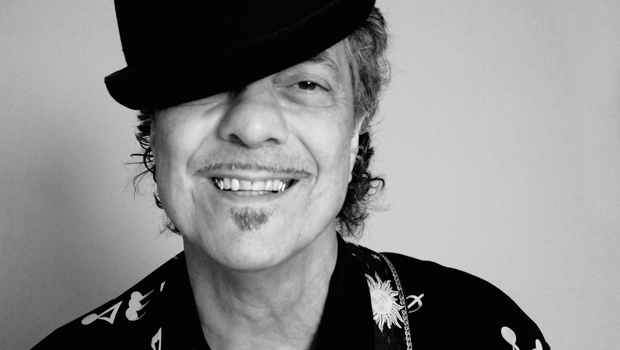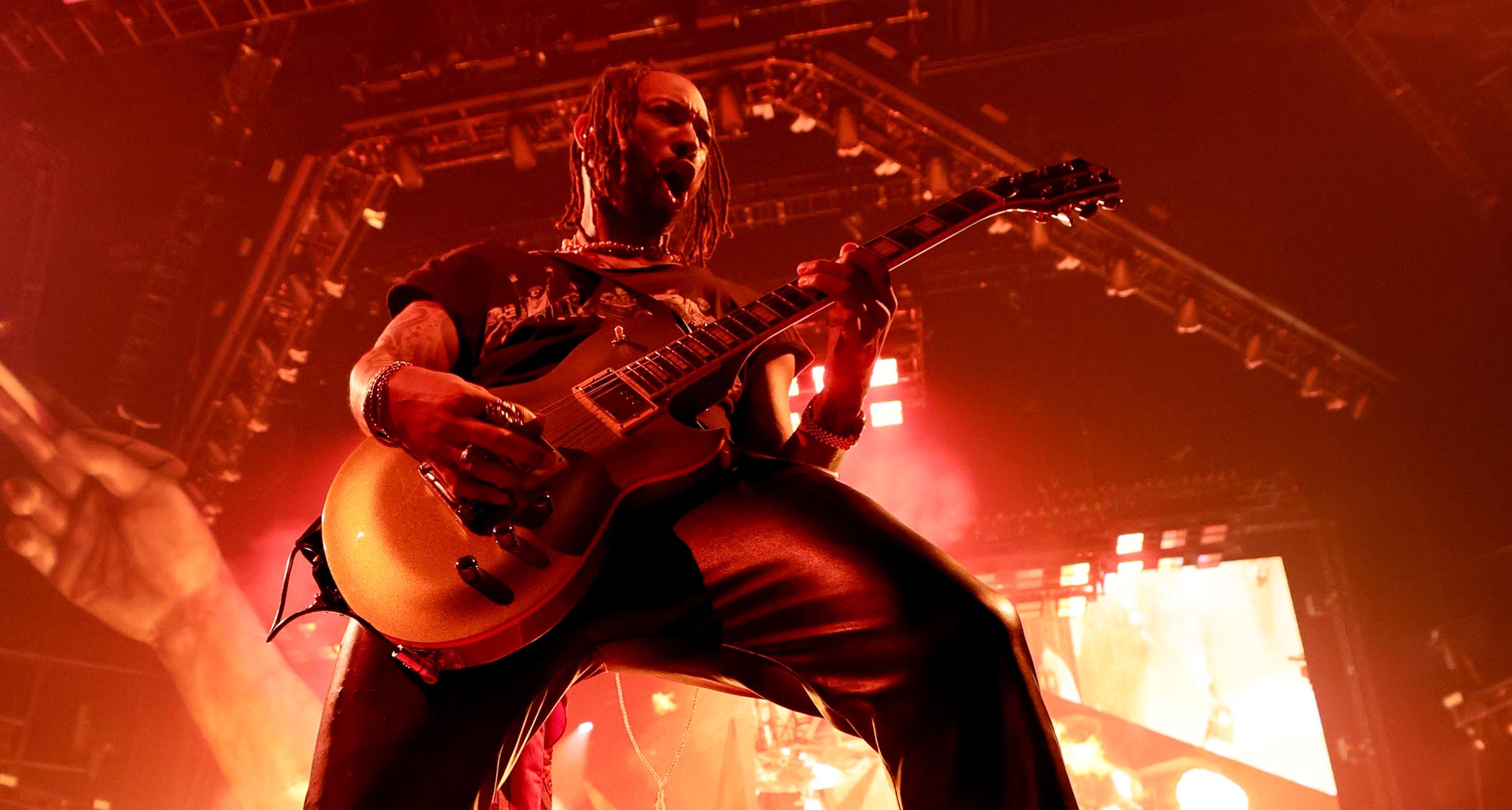All the latest guitar news, interviews, lessons, reviews, deals and more, direct to your inbox!
You are now subscribed
Your newsletter sign-up was successful
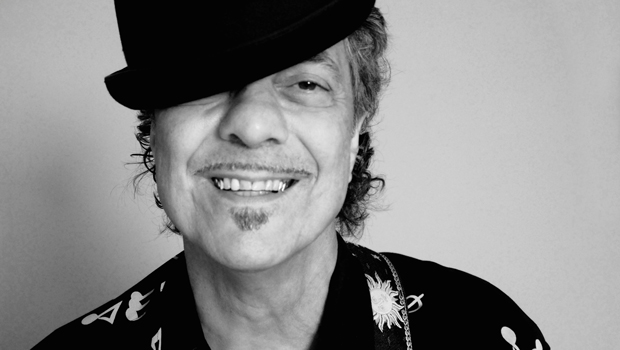
Johnny Nicholas is a bluesman's bluesman who's loyal to his roots and steeped in the tradition of the old masters.
Nicholas has shared the stage with such legends as Muddy Waters, Robert Lockwood Jr., Johnny Shines and Big Walter Horton.
Currently on tour with his band Hellbent, Nicholas, who sings from his heart and shoots from his hip, sat down with us to talk about his latest album, Future Blues, released on The People's Label on July 12.
GUITAR WORLD: This is your first album since 2007's Broke Again. What brought you back to the studio for Future Blues?
For a number of years, I've been wanting to record an album of my original material and songs people wouldn't typically associate with me. So there was this desire to do that while I was doing a project with the Texas Sheiks out in the Bay area, and on the way back, Bruce Hughes said, “I'd like to look at producing your next album.” I was ready so we agreed to go in the studio and do some tests.
At that point, I had "Graveyard Blues" and "Roads On Fire," and we just sat down and recorded those two tracks live in the studio with Bruce, a drummer and myself for tests and the rhythm tracks. Both of those wound up being on the album, we didn't even have to redo them. Cindy Cashdollar and I recorded the back and forth on "Roads On Fire" with the harmonica and her answering on the steel slide guitar.
What was the motivation behind "Hard time Livin'"'?
All the latest guitar news, interviews, lessons, reviews, deals and more, direct to your inbox!
Well, you know I've been wanting to write some songs to make people think about what's going on in the world. I want to try to make people think and hopefully get them to become more involved, so this is my little way of speaking out against injustice and the bad stuff that people in power do and have done for thousands of years.
What is the impact that some of your newer stuff has in Europe? Do you think they can identify with the things you sing about?
Europeans will really dig it because they also dig straight-up blues and the good song writers we have here in Texas and the U.S. They really get our music, and I think that even if you have someone over there that can't understand the words, all of the new stuff is deep in the pocket of the blues feel.
Is it easier to write blues as you get older?
I don't know, man. Writing is a gift but it's also a craft. If you have that gift, songs and ideas come to you and you cultivate those things by listening to other great songs or reading or thinking. But then when the time comes, you have to have the craft to finish the song and the idea. Experiences that have happened to you certainly play into that and help to open up that whole creative process. That's me, that's who I am. I'm a blues man.
Is it true you've got to pay your dues to play the blues?
I think that is certainly true; you do have to pay your dues in anything. If you want to be a certain type of craftsman or tradesman, you have to learn. It used to be that you had to serve an apprenticeship. You didn't go to the apprenticeship and say I want two days off a week and I want two weeks vacation and by the way, I want some really good wages to start out. No. You worked for nothing, you learned under the masters and that's the way I came up in music.
Can we change gears for a second and talk about your guitars? What kind of instruments did you use on Future Blues?
I used my 1962 Kay Value Leader, three-pickup guitar, which I love. There's a great story behind that guitar. My kids wanted to get me something for Christmas, so they talked to Uncle Jimmie Vaughan, who is a dear friend of the family. He got together with them and found this Kay guitar on eBay, so Jimmie went ahead and bought it and they picked it up and paid him.
You could tell it had really been played and had a lot of wear so they got it for a really great price. It turned out to be this really special gift, those old Hershey bar pickups can be really terrific. I've got it with me right now in the hotel room here on the East Coast. That's what I use on tour; it’s the same guitar Jimmy Reed played. Then I did play an early '60s Rickenbacker solid body and a Gibson A-model mandolin from the '50s or '60s that was given to me back in the '60s. I also played a Guild Starfire 4 and an early mid-'60s Danelectro convertible.
I also played a Silvertone I bought years ago with a case and amplifier which has two lipstick pickups and is the one I play slide on "Steadfast" with. And my sweetheart guitar, the Gibson J50, that was given to me in high school. The J50 and I have been all over the country. I've hopped freight trains, hitchhiked and played all over the world with that guitar.
Did playing with Big Walter Horton influence your blues harp style?
Yes, definitely. I spent a lot of time with Walter. We traveled all over the country and Canada together. We also had a little trio we traveled around with. It was me and Walter and S.P. Leary on drums. Jimmy Reed is the one that got me started putting the harmonica in the rack.
You mentioned Port Arthur earlier. You have a Port Arthur-style shrimp gumbo on the menu at your restaurant, The Hilltop Café.
Yes, my wife Brenda is from Port Arthur, Texas. She was born there. She grew up and went to school in Port Arthur with Clifford Antone and all those guys and helped to start Antone's Night Club in the early '70s, an original club, which was another amazing scene where you could go and listen to good music. Clifford would book acts like Bobby Blue Bland, Albert King and B.B. for two weeks at a time, or at least a one-week stint. That's where Stevie Ray Vaughan got all of his licks. I can still see him sitting there on the stage at Albert King’s feet just soaking it all in. And that was a great scene for so many of us. So yes, the Hilltop Café is my wife's thing. I play music there when I'm not on the road, and I get to eat real good.
So what's coming next for Johnny Nicholas?
I've already written enough songs for another album. I’ve just recorded down in Lafayette, Louisiana, with Sam Broussard and David Greely, and we've got a little trio project we're doing. I've got some great stuff with the band Hellbent booked, and promoting my new album is my primary focus for the next year, year and a half. I'd like to get back in the studio sometime next year and get these new tunes down. I'm trying to find the places where people really want to listen and dig good music. I offer from my heart and soul what is real for me and I try to offer to people real and sincere blues.
Johnny Nicholas' new album, Future Blues, was released July 12 on The People's Label.
Joe Moran is a freelance photographer, videographer and writer based in New York. Visit his website at jmoranphotography.com or write him at joe@jmoranphotography.com
